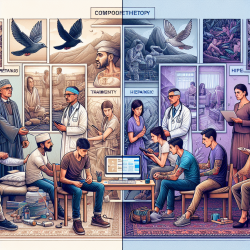Revolutionizing Health Care: Lessons from the Nuka System of Care
The Nuka System of Care, a pioneering health care model developed by the Southcentral Foundation in Alaska, has set a new standard in health care delivery. By focusing on customer ownership and relationship-based care, it has achieved remarkable outcomes. For practitioners in speech-language pathology and other health disciplines, understanding and implementing these principles can lead to transformative results, particularly in creating positive outcomes for children.
The Power of Customer Ownership
The Nuka System of Care is built on the concept of customer ownership, where the Alaska Native people are not just recipients of care but active participants in their health care system. This approach empowers individuals and communities, fostering a sense of responsibility and engagement that traditional models often lack.
For practitioners, this means involving children and their families in the therapeutic process. By giving them a voice and encouraging active participation, you can enhance engagement and motivation, leading to better therapeutic outcomes. This aligns with data-driven approaches that emphasize personalized care and measurable results.
Building Relationships for Better Outcomes
At the heart of the Nuka System is the emphasis on building strong, trusting relationships between providers and customer-owners. Research has consistently shown that relationship-based care improves health outcomes (Stewart et al., 1995; Di Blasi et al., 2001). In the context of speech-language pathology, this means creating a supportive environment where children feel safe and understood.
Practitioners can adopt this approach by prioritizing communication and empathy in their sessions. By understanding the child's context and family dynamics, you can tailor interventions that are not only effective but also culturally and emotionally resonant.
Data-Driven Decisions in Practice
The Nuka System's success is also attributed to its rigorous data collection and analysis, which guides continuous improvement. For speech-language pathologists, adopting a similar approach can enhance practice effectiveness. By collecting data on therapy outcomes, practitioners can identify trends, adjust strategies, and demonstrate progress to stakeholders.
Implementing data-driven decision-making involves setting clear, measurable goals for each child and regularly reviewing progress. This not only improves accountability but also ensures that interventions are evidence-based and tailored to individual needs.
Encouraging Further Research and Implementation
The Nuka System of Care offers valuable insights for health care practitioners seeking to improve their practice. By embracing customer ownership, relationship-building, and data-driven decision-making, practitioners can enhance their skills and create better outcomes for children.
For those interested in further exploring these concepts, I encourage you to delve into the original research paper. Understanding the full scope of the Nuka System's impact can inspire innovative approaches in your practice.
To read the original research paper, please follow this link: The Nuka System of Care: improving health through ownership and relationships.










